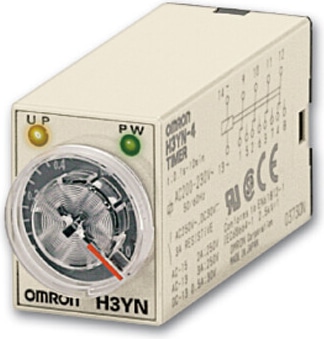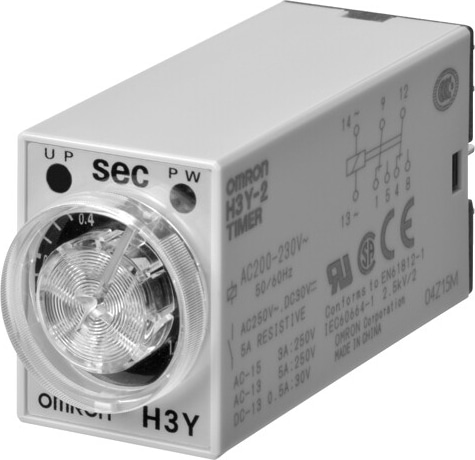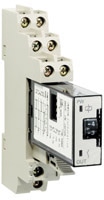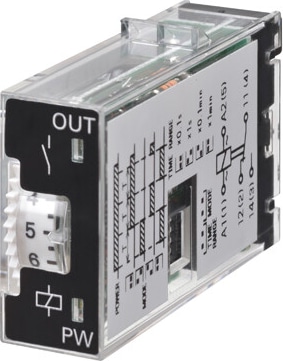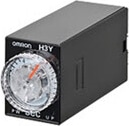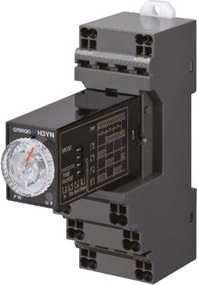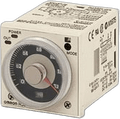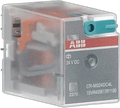Time-Delay Relays
Time-delay relays are designed to control an event based on a predetermined time delay, essential for precise automation and timing in industrial applications. Discover our range of time-delay relays featuring various timing functions, voltage ratings, and configurations. Ideal for automation processes, these relays ensure precise and reliable timing control. Choose from options like H3YN Solid State Timer, 8 or 14 Pin Sockets, and analog dial settings. Perfect for your industrial needs.
Series
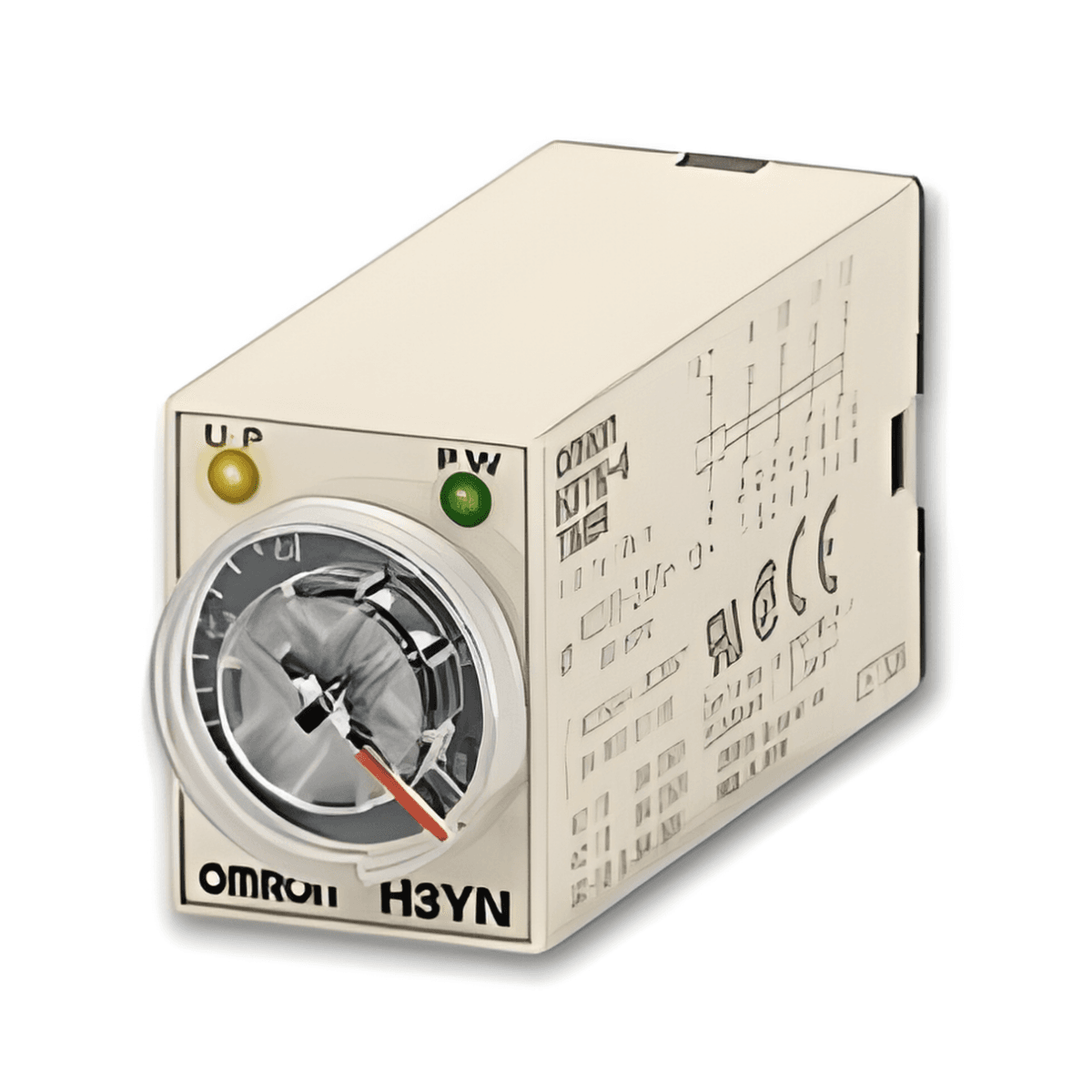
Omron H3YN Time-Delay Relay
Key Features:
- Versatile Timing Functions: Offers multiple timing options including on-delay, off-delay, and interval timing.
- Compact Design: Space-saving design ideal for control panels.
- Wide Time Range: Broad time range from 0.1 seconds to 10 hours.
- User-Friendly Setup: Simple setup with an analog dial and dip switches.
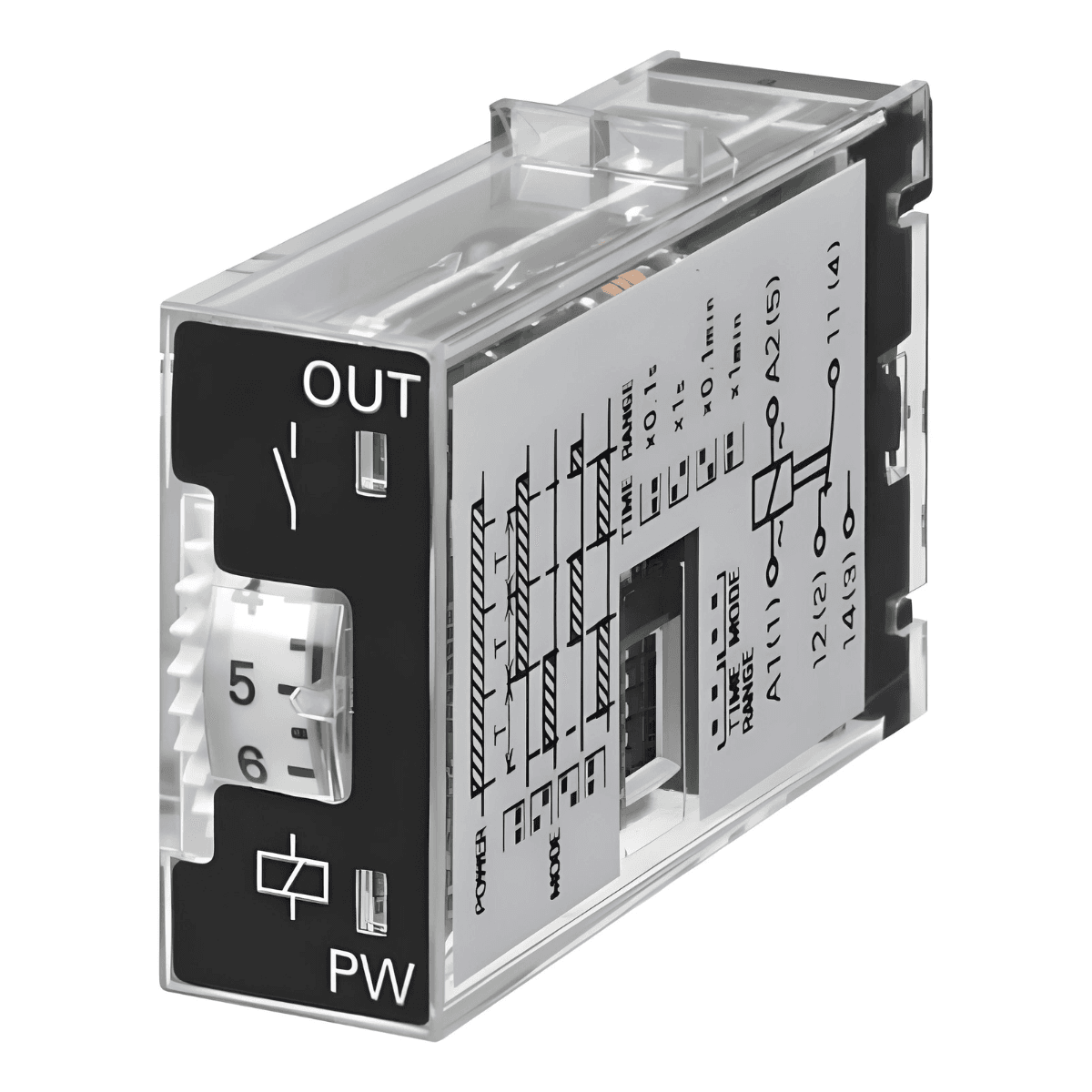
Omron H3RN Time-Delay Relay
Key Features:
- Multi-Functional: Includes on-delay, off-delay, and interval timing options.
- Space-Saving Design: Compact form factor for tight spaces.
- Flexible Timing Range: Time range from 0.1 seconds to 10 minutes.
- Easy Adjustment: Easy-to-use analog dial for setting time and functions.
Time-Delay Relay FAQs
Time-delay relays are switches that control the activation or deactivation of a circuit after a set time delay. They ensure specific actions occur at the correct time, optimizing processes in various industries.
Time-delay relays introduce a delay between the activation of the input and the response of the output. This delay can be used to manage start-up and shutdown processes smoothly, avoiding sudden changes that might damage equipment.
There are several types, including On-Delay, Off-Delay, One-Shot, Interval, and Recycle Timers. Each type serves specific applications, such as delaying motor starts, controlling lighting systems, or cycling equipment on and off.
They are crucial for maintaining process efficiency and equipment protection. Time-delay relays help in reducing mechanical stress, ensuring smooth operations, and providing precise control over industrial processes.
Consider factors like voltage rating, operating modes, delay time range, and the specific application requirements. For detailed assistance, contact our team of experts to help you select the appropriate relay for your needs.











































